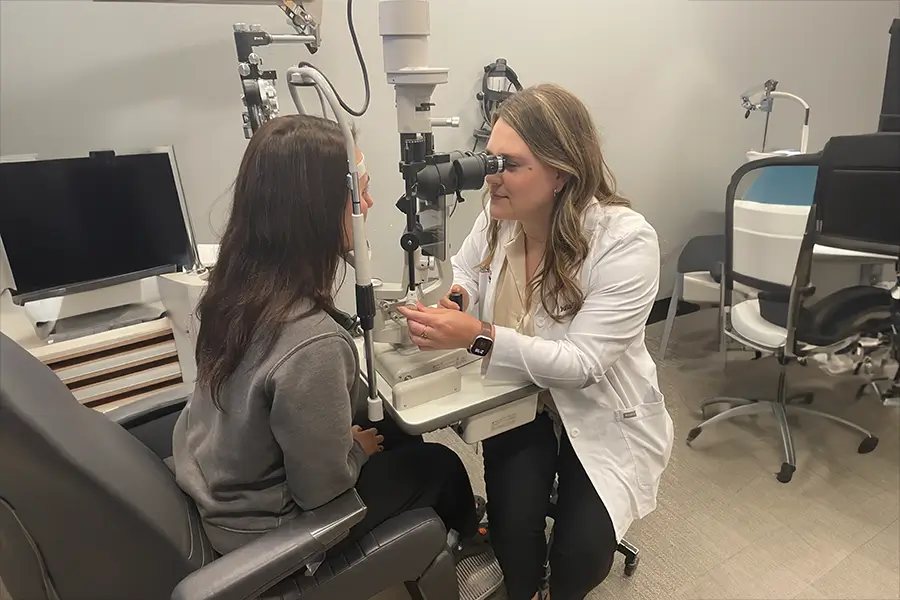Home » What is an Eye Doctor?
An eye doctor is a healthcare professional who specializes in diagnosing, treating, and managing eye and vision problems. There are different types of eye doctors, each with specific training and expertise who work together to optimize your eye health. The primary types of eye doctors are optometrists and ophthalmologists. Understanding the qualifications, and services provided by eye doctors can help individuals make informed decisions about their eye care.

Optometrists are healthcare professionals who provide primary vision care. They hold a Doctor of Optometry (OD) degree. Optometrists are trained to perform eye exams, diagnose and treat various eye conditions, and prescribe corrective lenses. They can also prescribe medications for certain eye diseases and provide pre- and post-operative care for eye surgeries.
Roles and Responsibilities of Optometrists:
Optometrists play a crucial role in maintaining overall eye health and helping patients achieve optimal vision.
Ophthalmologists are medical doctors (MDs or DOs) who specialize in eye and vision care. They are trained to perform eye exams, diagnose and treat all eye diseases, prescribe medications, and perform eye surgery. Ophthalmologists complete medical school, followed by a residency in ophthalmology, which provides extensive training in eye care and surgery.
Roles and Responsibilities of Ophthalmologists:
Ophthalmologists are equipped to handle all aspects of eye care, from routine exams to advanced surgical procedures.
Regular eye exams are vital for maintaining eye health and preventing vision problems. Eye exams can detect early signs of eye diseases that may not have noticeable symptoms. Early detection and treatment of eye conditions can prevent vision loss and improve overall eye health.
Benefits of Regular Eye Exams:
Regular eye exams are an essential part of a comprehensive health care routine, helping to maintain clear vision and overall well-being.
Selecting the right eye doctor depends on individual needs and the type of eye care required. Here are some factors to consider when choosing an eye doctor:
Choosing the right eye doctor ensures that you receive the best possible care for your vision and eye health.
Knowing when to see an eye doctor is crucial for maintaining good eye health. Here are some signs and symptoms that indicate it’s time to schedule an appointment:
Timely visits to an eye doctor can prevent serious eye conditions and ensure prompt treatment for any issues that arise.
The field of eye care is continuously evolving, with advancements in technology and treatment options improving patient outcomes. Some of the latest developments in eye care include:
Staying informed about the latest advancements in eye care can help patients make informed decisions about their treatment options.
Eye doctors play a vital role in maintaining and improving eye health and vision. Whether you need a routine eye exam, treatment for an eye condition, or assistance with corrective lenses, understanding the roles of optometrists, ophthalmologists, and opticians can help you find the right eye care professional. Regular eye exams, early detection of eye diseases, and access to advanced treatments are essential for preserving vision and overall health.
By choosing the right eye doctor and staying proactive about eye health, individuals can enjoy clear vision and a better quality of life. Whether you visit an optometrist for a routine check-up or an ophthalmologist for specialized care, taking care of your eyes is a critical aspect of overall wellness.
At Tennessee Eye Care, we believe that our eye doctors are the best in the business. Each provider brings their own unique skills and expertise to the table, allowing us to offer a comprehensive range of eye care services. Whether you need a routine eye exam or specialized care, our providers are here to help.
So why wait? Contact us today and experience the difference that comes with expert eye care at Tennessee Eye Care. Let us help you maintain your best vision and eye health for years to come.